7 Everyday Medications That Could Soon Cost More Due to New Tariff Threat
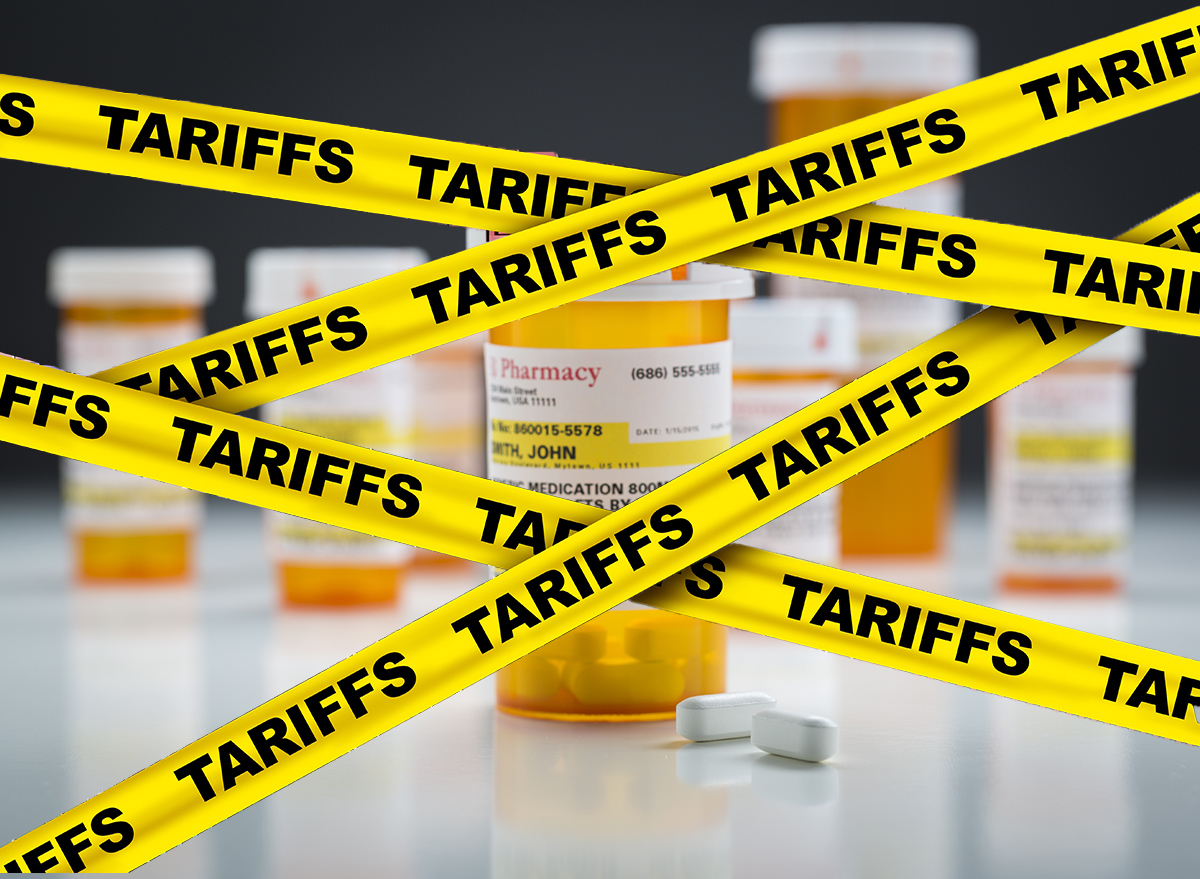
The United States imports a significant amount of medications from overseas, both prescription drugs and over-the-counter meds. The tariff war taking place with China in particular could seriously impact pricing on vitamins and supplements, leaving suppliers no choice but to pass those costs on to the consumer. If the tariffs end sooner it might not be too concerning, but with the uncertainty of the trade war and escalation between the U.S. and China, there's no telling how expensive specific items could get. Here are seven everyday medications that could soon cost more, thanks to the tariff threat.
Aspirin

Aspirin is made in a number of different countries around the world, including Germany, Spain, China, and India, but mostly China. According to Yale Budget Lab, basic pharmaceutical products will likely increase in price by about 12.4%. "Most of the North American supply of aspirin, for example, comes from China, which produces about 120 billion tablets per year," says the NIH.
Vitamin C
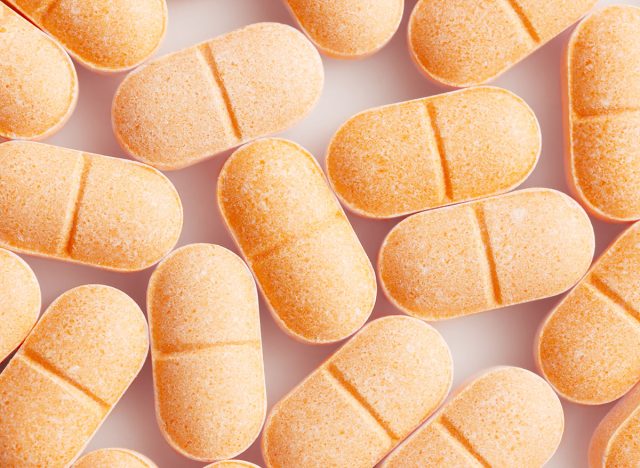
Anyone who takes vitamin C supplements should expect them to cost more, thanks to China's monopoly on the production of this crucial nutrient—91% of vitamin C in the U.S. is imported from China. "There simply is not enough global production capacity outside of China to meet the demand of the US should there be a disruption in the supply of vitamins from China," says the AFIA.
Antibiotics

China exports a significant amount of antibiotics to the U.S. "Medicines can be used as a weapon of war against the United States," Rosemary Gibson, a senior adviser on health care issues at the bioethics-focused Hastings Center and co-author of "China Rx: Exposing the Risks of America's Dependence on China for Medicine," said in 2019, via Politico. "Supplies can be withheld. Medicines can be made with lethal contaminants or sold without any real medicine in them, rendering them ineffective."
Bandages and Cardiovascular Meds

While not technically a medication, the U.S. is heavily reliant on China for bandage imports. "Over the past decade Chinese shipments have, on average, comprised 40 percent of total imports," according to Atlantic Council. 45% of cardiovascular medicine containing alkaloids comes from China.
Vitamin B6
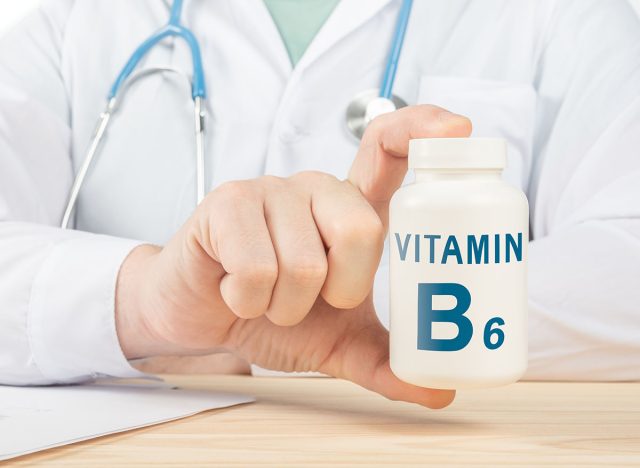
Vitamin B6 is important for brain development and immune support, and 94% of the Vitamin B6 in the U.S. is imported from China. "In 2023, the leading exporters of Vitamin B6, derivatives, unmixed were China ($173M), Germany ($50.2M), and Netherlands ($40.4M). The top importers were Netherlands ($62.2M), United States ($38M), and Germany ($12.9M)," says the OEC.
Fish Oil Supplements
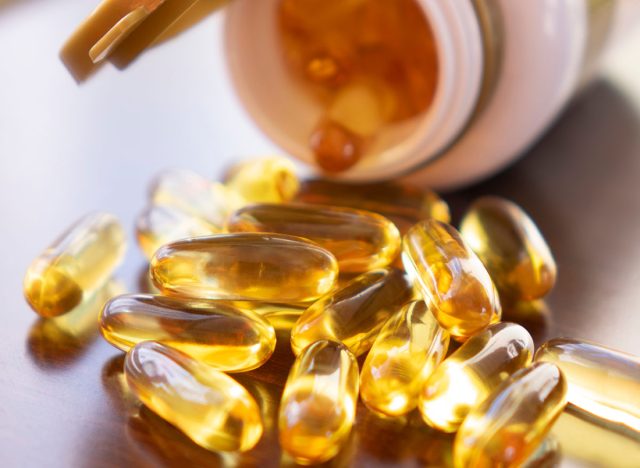
Americans who rely on fish oil supplements to support their health and wellness regimens may soon be paying a lot more for them. "In 2023, global trade of Fish Oil reached $4.25B, reflecting a 35.4% increase from 2022, when trade totaled $3.14B. Over the past five years, trade in this category has grown at an annualized rate of 15%," says the OEC. "In 2023, the leading exporters of Fish Oil were Chile ($459M), Denmark ($335M), and Norway ($333M)."
Folic Acid
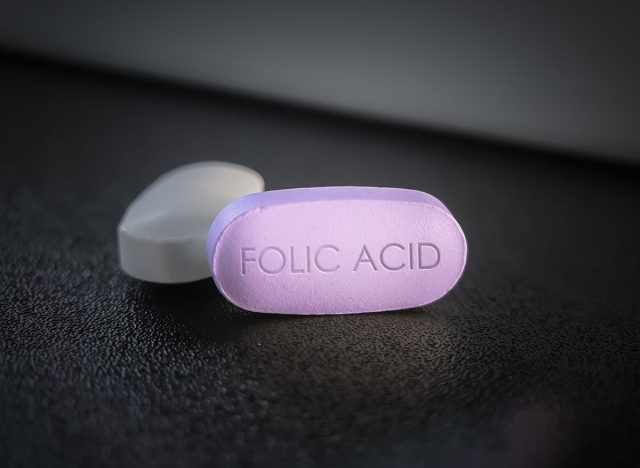
Folic acid is a crucial supplement for pregnant women, and China is the world's largest producer of synthetic folic acid, supplying 58% of all U.S. imports of folic acid (by number of shipments) in 2023. This is an increase from 42% five years earlier, according to Harvard Business Review, which means you could soon be paying more for this OTC supplement.









